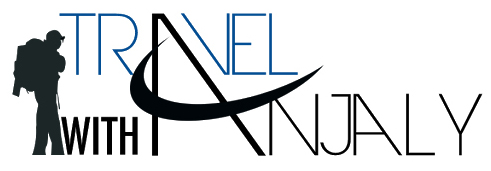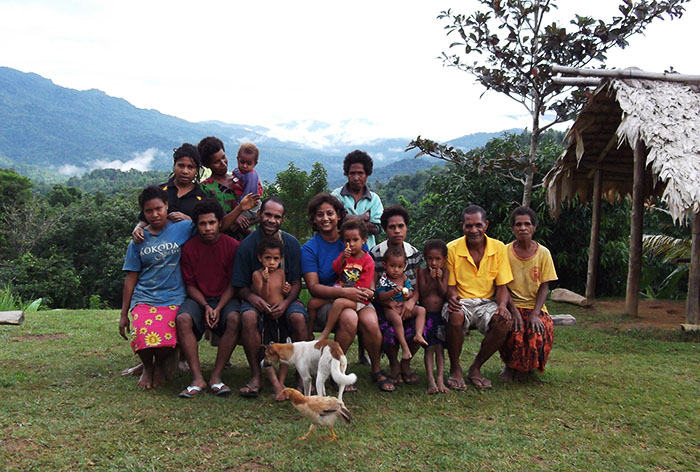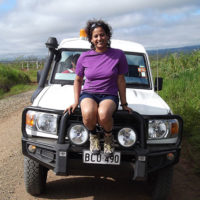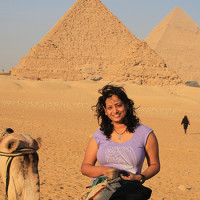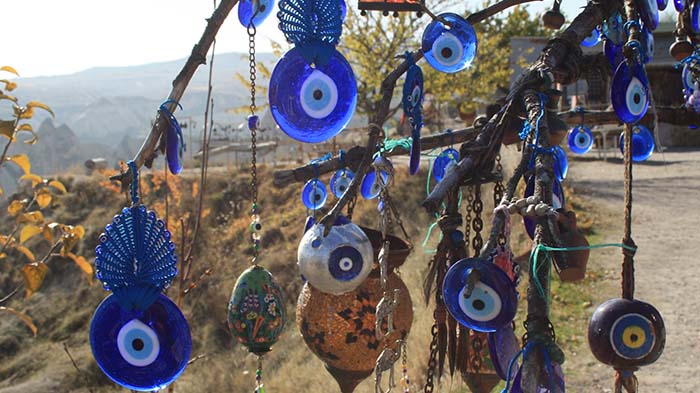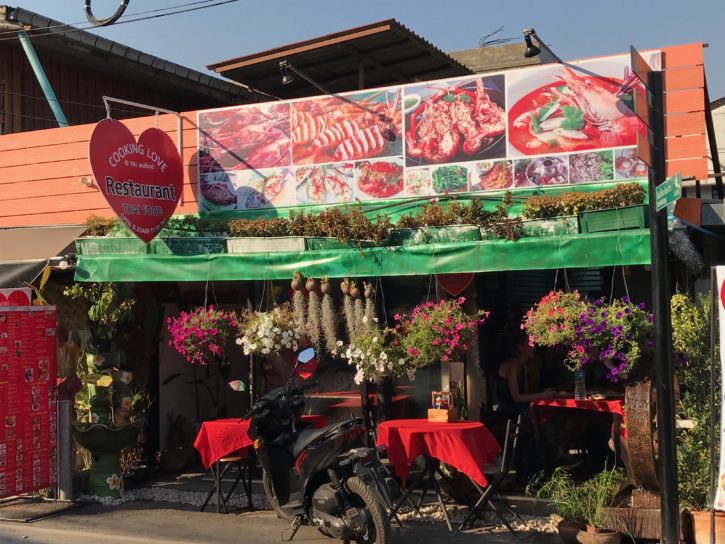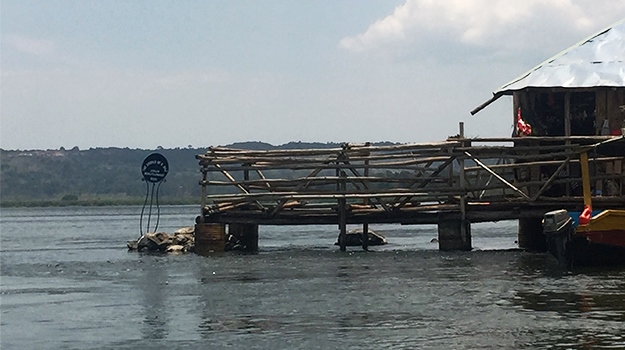…continued
| I don’t know what it was about the rustic way of cooking that appealed to my wild side, but when we reached Effogi, our food-drop station, I had cheered up considerably. |
There comes a time in every person’s life when a frank communication with the creator is the only solution out of a situation they have landed in. The communication follows the realization that intentions, however well placed or desires however achievable, were misplaced when you are trekking Kokoda Track without the body and stamina of Brendan Buka, a native Papuan who claimed the top rank as the fastest runner to complete Kokoda Track, starting from Owers’ Corner to Kokoda and vice versa. However, the least you should do before cutting a deal with god is ensuring you have some of the stamina required to go halfway before giving up. I gave up.
I negotiated.
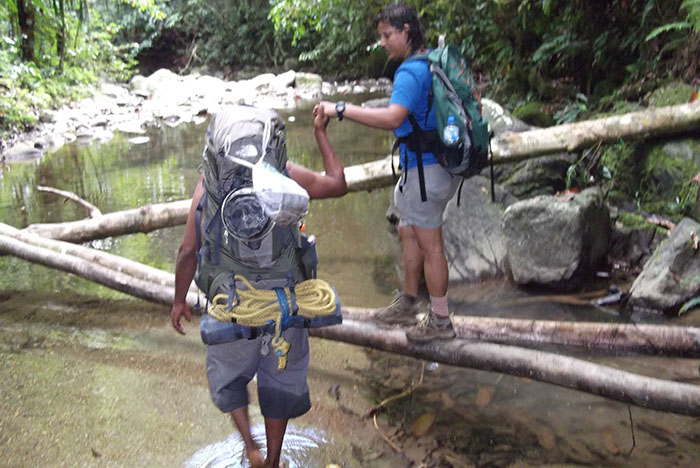
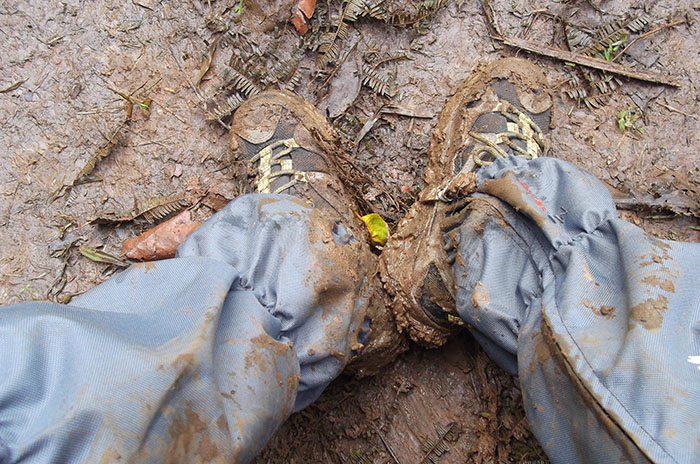
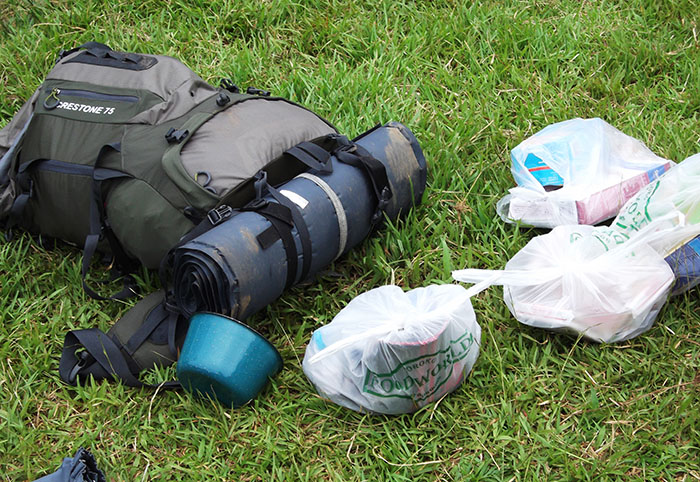
Pledging my eyeballs in return for reaching the end safely was my first offer, but I am sure god, the eternally funny man, must have laughed out loud at another of my stupid promises to get out of a situation I had put myself in.
My second offer was conditional. I promised I would (if I made it to the finish line) remain true to the following.
- Never say unkind words to parents, brothers and other family.
- Never waste a chance to say I am sorry.
- Never give up any chance to say I love you.
- Never give up on anyone.
- Never complain about heat, humidity or lack of toilet paper.
- Never complain about food.
- Never taking anything for granted.
I have no written record of all the promises I made; when you have walked for nine hours up and down narrow, slushy dirt tracks covered with roots and fallen trees with the help of a walking stick fashioned out of a branch, your fingers are not expected to retain their flexibility or strength. Under these circumstances expecting those blistered digits to shape your thoughts on paper was cruel. So my list was really a mental list—advantageous if you forgot to keep your promise.
It may seem like I was pledging myself to martyrdom, because if I really stuck to my promises, I would be left with no admirable vices. It is understood that a traveller must have some vice—at least cynicism or pride, but desperation was causing muddle-headedness and being unsure if my undertaking was acceptable to my maker, sticking to the above till I reached the end was a good idea.
At the end of the Day 3, the first memory card was full with pictures of me in the same clothes, the same hangdog expression and in almost the same background. Of the trek, I have a very vivid recollection of every rock and stream, every climb and fall, every meal, and every muscle that ached at the end of long days. But surprisingly I
don’t remember a conversation with another human, except with Vico and Jones and a group of Australian trekkers headed the other way.
In the footsteps of brave Australian soldiers we marched, Jones and Vico easily, me with difficulty, but uncomplainingly and sticking to my promise to god, though my frequent blackouts lead us to rework our plan—adopt shorter walking hours and thus extend the trek duration.
But when you budget for two days and want to stretch it to four, food supplies take a beating and when your food-drop station (namely Effogi) is pushed further away with no way to get to it in the reasonably foreseeable future, trekking suddenly feels like a death walk. But this was also where practicality kicked in. We changed our approach to food.
Instead of worrying over procuring local food from villages around campsites, anything that looked remotely like food went into the cooking pot over wood fire.
I don’t know what it was about the rustic way of cooking that appealed to my wild side, but when we reached Effogi, our food-drop station, I had cheered up considerably. There was the promised extra packet of milk powder waiting, particularly exciting because Vico had presented his skills with mashed taro in milk, which was quite a thing really. But eventually we had run out of milk and resorted to roasting raw bananas.
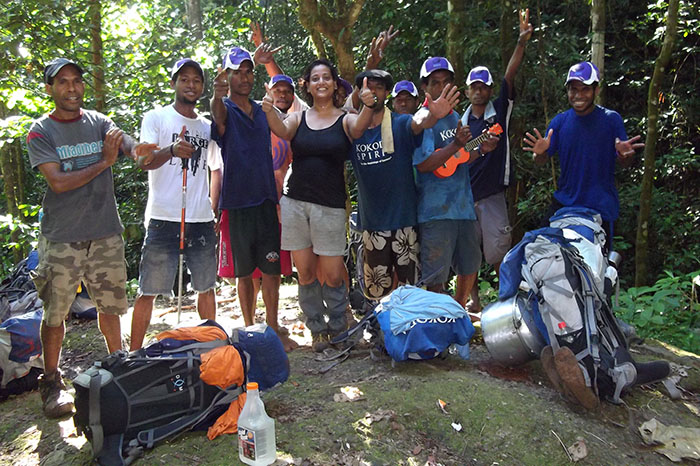
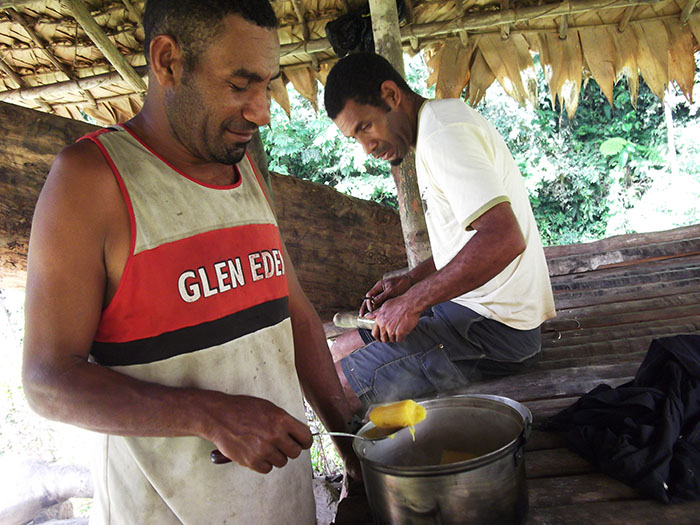
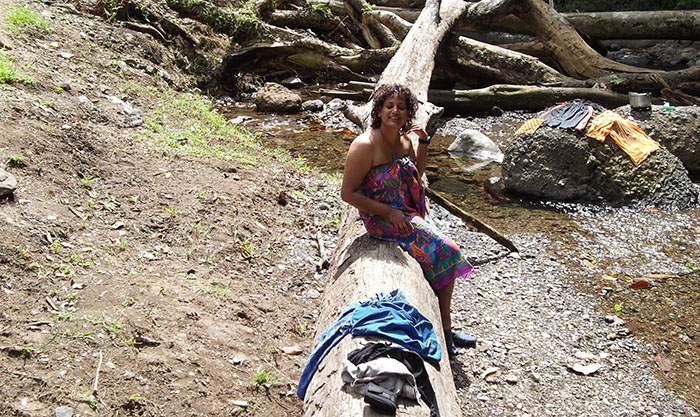
I should have let myself be flown out of Effogi really, but Vico pushed me on. I hated myself for being talked into it, so when PMS set in around Mayola, I nearly killed myself (and Vico) and cried myself to sleep every night till we reached Templeton Crossing and refused to go further. Okay, I must add here that I was thankful for the change of scenery at Mt Bellamy, but that is all.
The nine-day trek ran into eleven, the reason I am alive to tell the tale. It would have been easy enough to collapse and die on any of the slopes. On Kokoda, you were either walking up or down anyway.
When we did get to the end of the trek, there was no one to witness our victory. Darn victory! Victory was strange. It didn’t matter to anyone but yourself—and I couldn’t have cared anymore.
***
But as it happens with memories, mine was particularly attached to one because it was something I carried back with me—my sudden, incurable fondness for raw bananas. Fried, steamed, raw or roasted, the thought of green bananas still rule my mind. Everything else about the trek makes me shudder. I don’t care anymore about a record or about explaining how tough it was—all I wonder is whether I could be talked into walking it again.
Maybe.
Maybe. But I will definitely begin at Kokoda and walk back to Ower’s Corner.
I want to eat the pizza first.
***
I am not sure what disturbed me more—having the camera stolen so soon after the trek or losing the 4GB SD card that contained my pictures after Day 3 in it. But the feeling of loss on finding my Nikon gone was easier to handle compared to the feeling when I ran into machete-wielding kids in Port Moresby. Going by the looks on their faces, they didn’t seem averse to employing their weapons to mutilate my hands to get at my G-Shock watch.
And much as I liked to think that a bunch of kids in my home town and in the city of Port Moresby would recoil from my stares, I changed my mind when one of the blighters let out a sort of war cry in a language I had not
heard before, and East Boroko not being the place I fancied myself buried, I ran.
Cameras were fine, so were pictures—losing an arm, however, wasn’t pretty and not so soon after the loss of my material possessions. And arms were not sold in the betel- juice stained streets of Port Moresby, pun unintended.
Philip, my trek organizer, when he came to fetch me from Foodworld where I was recovering over a cup of chocolate, looked grim and determined to shut me up in some secure place.
“Stay in the hotel, you will be safe there,” he said repeatedly, taking a poor view of the plight of his native land and its rogue kids.
“Don’t go out alone again. This place is not safe.”
Surprisingly, I agreed with him.
Another reason for not putting up an argument was Philip’s peace offering of Mary Blouse, the local costume with short, puffed-sleeves in bright purple colours.
“For Kokoda,” he had said. Now, why hadn’t he induced me with a Mary Blouse instead of the pizza to start with!
Questioning it All
Throughout my travels I have managed, as reasonably as possible, to maintain a non-judgemental stand about the place I was in, but Port Moresby forced that resolve out of me. Only someone with a really strong character and love for extremely risky things could appreciate the city wrought with dangers. Much as I like to call myself an intrepid traveller, my adrenaline didn’t kick in when my life was balancing.
Had Philip relented, I would have opted to live out in the jungle till the day of my departure. Eating taro and squatting by the streams seemed like something I could get used to or even like, but Philip returned me to the safety of Wellness Lodge with armed security and strict warning about not letting me out alone.
Then as the ultimate contradiction to my otherwise fearless nature, I wanted to go home. To someplace safe. Someplace clean. Someplace I didn’t have to stare at blank faces. Someplace I could wear a watch and shoes. Someplace I didn’t hear gunfire.
Home.
Usually, I am back on my feet with a smile on my face as soon as the sun comes back up and there are tasks at hand to occupy my thoughts, but the sun clearly didn’t do much to Port Moresby. The two nights that preceded my flight, thinking over the record-making nightmare named Kokoda brought the worst downtime I have ever experienced to date. And it is not hard to guess that nothing can ruin your trip like experiencing downtime.
I hope you will understand that my idea is not to discourage anyone from visiting PNG. Like every solo traveller, I too love the experiences of walking at my own pace, eating when and where I want, standing and staring at a tree or a bird or whatever catches my fancy for as long as I want, without gun-toting G4S security guards watching my moves. I mean, the idea of solo travelling was to avoid clingers, and you know security guards can be the worst sort of clingers: they are paid to do so. And don’t forget the number of questions they ask.
I was sort of facing a hotel arrest. They meant well, I am sure, but given my nature, it was a little hard to remain within the walls when I could have explored the city in my own little way. Not that any of the guards could restrain me physically if I wanted to get out. But while my wild, independent side wanted to get out as if to defy authority, the more practical side (yes, I DO have one such side) assured me that I wasn’t missing much and that it was best to return with my body parts intact. I didn’t particularly fancy becoming anyone’s meal.
Lizzandra, the night receptionist at the hotel, was Providence’s proof that she was working in my favour, managing in some way to make us friends. From her I learnt the only Pidgin word—in return for instructions on how to set up a Facebook account—that word was “kakaruk”.
A practical word to learn really—it was the only way I could ever express my desire for chicken in the two remaining days before take-off. One does get a little anxious for the stuff after feeding on taro and cassava or braving the streets of PNG in trying to get to a food joint.
Don’t get me wrong about PNG though. The streets were unsafe, the food not very palatable, the Kokoda Track really tough, the neighbourhood didn’t have much to show off, very expensive hotels (of the few that were around), but PNG did have a heart.
They, like the rest of the world, loved Facebook.
